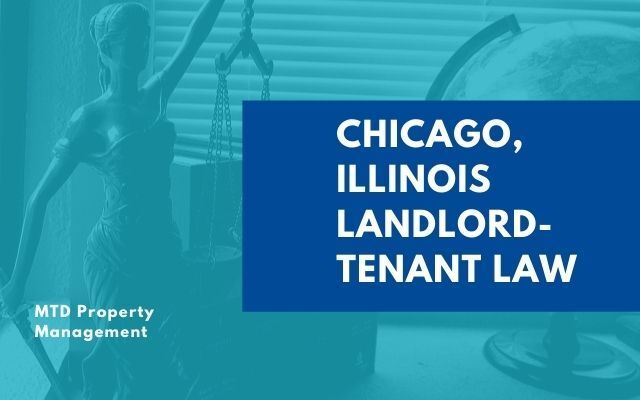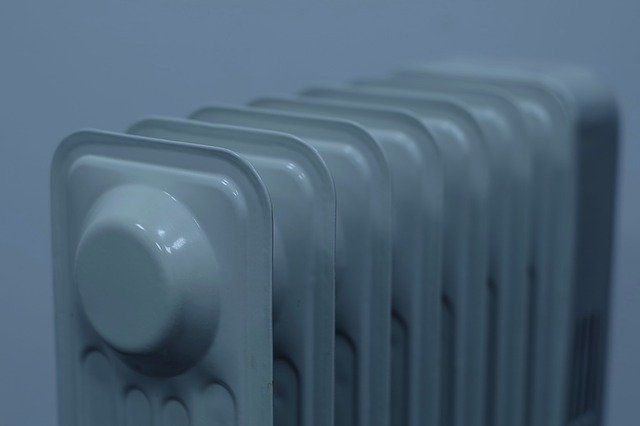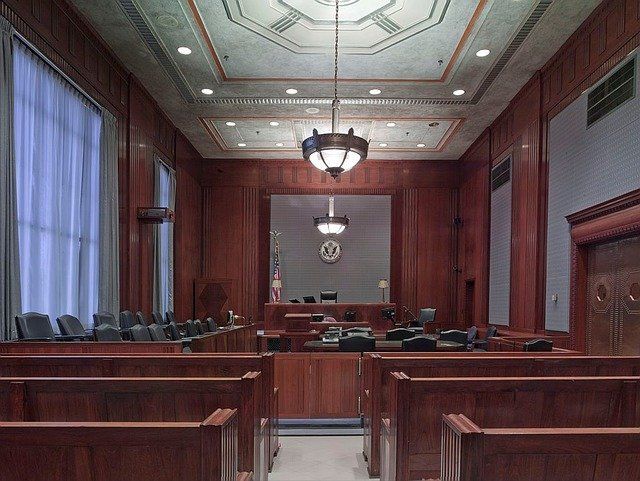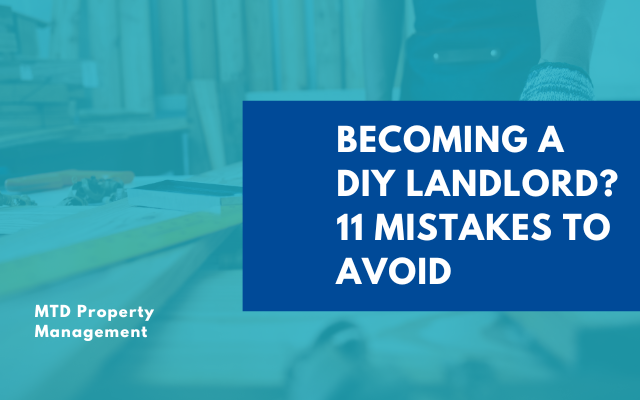Illinois Rental Laws - an Overview of Landlord Tenant Rights in Chicago
Like every state, Illinois has its own set of landlord-tenant laws that Illinois landlords need to be aware of. While the statewide rental laws are fairly straightforward, things can get tricky when it comes to Chicago in particular.
In addition to state law, it's often the case that major cities have their own highly-specific landlord tenant laws. The Chicago Residential Landlord Tenant Ordinance (CRLTO) has strict laws, particularly when it comes to security deposits.
Illinois Landlords in Chicago must be sure not only to follow Illinois law, but also to adhere to the local ordinances. It can be complicated to ensure you're fully compliant with all the state laws that apply to properties as well as the Federal Fair Housing Act, which is why Illinois landlords often turn to property management companies for help.
Here's a Basic Overview of Chicago's Laws for Rental Properties
Landlords in
Chicago must make numerous disclosures to the potential tenant before agreeing to or signing a written agreement or lease. The following is the information that you must provide your tenant with.
Recycling rules: In 2017, Chicago passed a bill requiring landlords to educate their renters about recycling. Specifically, before a prospective tenant's tenancy, you must let renters know about what items can be recycled, and how to prepare recycling before dropping it into the blue carts. Per municipal law, you must repeat the process with new lease agreements, lease extensions, or renewals to ensure all renters are properly informed.
Radon gas disclosure form: Radon gas is a colorless, odorless, radioactive gas. It’s classified as a Class A carcinogen and is the 2nd leading cause of lung cancer in the country. If a radon hazard exists in the building, the landlord must abide by local and state laws and let all future renters know of the hazard prior to signing the rental agreement. It’s essential that tenants are informed to ensure their safety and well-being and to avoid potential housing discrimination or unsafe housing conditions.
Lead-based paint disclosure: If your rental property was built before 1978, it may contain lead-based paint. Like radon, lead is a health hazard—especially to children. The U.S. Environmental Protection Agency requires you to provide your renter with approved pamphlets before they sign the lease. Additionally, if the lease is renewed, you must ensure that the renter has received the necessary information about the potential hazards and housing safety protocols.
Heating estimated or actual cost disclosure: Is your apartment individually metered for heat, and is your renter responsible for paying for heating utility bills? If so, the City of Chicago requires you to make a heating cost disclosure before the renter signs the Illinois lease. This disclosure helps ensure that tenants are aware of their housing-related expenses and make informed decisions about their living situation.
Bed bug disclosure form: You must also educate your tenant about the prevention and treatment of bed bugs prior to signing the lease agreement.
Security deposit receipt: If landlords wish to accept security deposits, they must make certain information known to their tenant before and after the tenant signs the lease and pays the deposit. For example, you need to state the amount, the date it was received, and the name of the person who received it. Additionally, landlords must comply with the Illinois Retaliatory Eviction Act to ensure they are not penalizing tenants for exercising their legal rights.
Summary of the Chicago residential landlord and tenant ordinance: Before a lease can commence, a landlord must provide their tenant with a summary of the statewide landlord-tenant ordinances. This summary helps ensure that both parties understand their rights and responsibilities, including details about rent, lease agreements, and any rental fees the tenant pays. You can get a summarized copy from the Commissioner of the Department of Housing and Economic Development.
Identification of owner and agents: You must inform your tenant about the name, address, and telephone number of whoever is acting on behalf of the owner. This includes providing contact information for any agents involved in managing the property. This disclosure, however, doesn’t apply to dwellings in owner-occupied buildings of six units or less.
Landlord Rights & Responsibilities
Under Illinois landlord-tenant law, landlords have a right to:
- Charge tenants a security deposit.
- Inspect the rental premises regularly, as per the lease.
- Evict tenants or begin the eviction process by sending an eviction notice to tenants who commit a lease violation, breaching the terms of the written lease agreement.
- Enter the rental unit to carry out agreed or requested repairs.
As for responsibilities, Illinois landlords are obligated to:
- Not enforce prohibited lease provisions stated in lease.
- Conduct property maintenance and complete repairs in compliance with all applicable provisions of the Municipal code.
- Give the tenant a written notice of the owner’s or manager’s name, address and telephone number.
- Treat each tenant equally per the Fair Housing Laws
- Maintain the unit to habitable standards through completing repairs.
Tenant Rights & Responsibilities
Under Illinois law a tenant has a right to:
- Live in and seek habitable housing.
- Live in peace and quiet, protected from unreasonable annoyances.
- Be treated fairly and equally without any discrimination based on their protected characteristics.
- Live in a rental unit that’s safe and secure.
Per the Landlord Tenant Act, Chicago a tenant is responsible for:
- Keeping their rental unit clean and habitable throughout their tenancy.
- Not disturbing other residents.
- Not deliberately or negligently causing damage to the rental. Normal wear and tear is acceptable.
- Buying and installing working batteries in smoke and carbon monoxide detectors in the apartment building and individual units.
- Ensuring they use all facilities and equipment in a reasonable manner.
Overview of Illinois Landlord-Tenant Laws
Security Deposit Rules
As an Illinois landlord, you must follow certain rules when it comes to handling a tenant’s security deposit. An Illinois tenant can sue landlords in the Illinois small claims court over the mishandling of their deposit or failing to pay interest, which could greatly affect landlords. That's why it is paramount for landlords to stay informed about the security deposit rules. Some landlord responsibilities, including those related to the lease and tenant interactions, are as follows:
A landlord cannot hold the tenant's deposit past the move-out date without cause. A landlord leasing residential real estate containing five or more units who receives a security deposit may not withhold any part of that deposit as compensation for damage unless they provide to the tenant a statement of alleged damage within 30 days of the date the tenant vacates.
As per the Security Deposit Interest Act, the landlord must also pay the tenant interest on the deposit from the date it was paid, if held more than 67 months. Additionally, landlords must ensure that rental payments and deposits are handled transparently to protect tenant protections and avoid legal disputes.
A landlord must give their tenant a receipt for their security deposits. The institution storing the tenant’s deposit must be federally insured and be located within the state of Illinois. Additionally, landlords must ensure that this process complies with tenant protections and is clearly outlined in the tenancy agreement to safeguard both parties' rights.
Security deposits must not be stored with other funds: Once a tenant has paid their deposit, it must be stored in an interest-accruing account. The interest accrued will be set by the Chicago City Comptroller.
Notice of Entry
Every now and then, you’ll need to enter your Illinois tenants' leased premises. The reasons can vary. For example, you may need to inspect the residences, or to show the unit to prospective tenants, buyers, or lenders.
Under Illinois rental law, prior to accessing a tenant’s rented premises, you’re required to notify them in advance. Specifically, you must send them a 48 hours’ written notice prior to setting foot on their premises. It is wise to wait for the tenant's consent after sending proper written notice.
What’s more, the entry times must be reasonable as well. You must only access the premises between 8AM and 8PM. The only exception to these regulations is if you’re responding to an emergency.
Following these guidelines helps improve the landlord-tenant relationship by fostering trust and respecting the tenant’s privacy. For landlords, adhering to these rules also ensures compliance with legal standards and promotes a positive renting experience.
Late Fee Rule
As per the CRLTO, late fees must not exceed $10 per month for rents up to $500. For rents above $500, you can charge a late fee of $10 plus 5%.
So if you charge your tenant monthly rent payments of $450 and they pay rent late, you can only charge them a late fee of $10.
However, supposing the monthly late payment or unpaid rent is $700, you’re free to charge late fees of $10 plus 5% ($35).
Housing Discrimination
The Chicago Fair Housing Act makes discrimination based on protected characteristics in housing-related matters illegal.
The protected characteristics in the fair housing act include ancestry, national origin, color, race, disability, religion, marital status, and gender identity. Discrimination based on these characteristics constitute a civil rights violation under the Illinois Human Rights Act.
Rent Withholding
Rent withholding by a tenant under certain circumstances is legal. A tenant can choose not to pay rent for two reasons. One is if the unit is in breach of the state’s implied warranty of habitability. The second is if the landlord fails to abide by the lease terms.
Conclusion
Do you find yourself with more questions about how to ensure you're following all the necessary Illinois landlord tenant laws with your rental? Get in touch with the experts at MTD. We have extensive experience helping landlords in Chicago succeed.
Disclaimer: This blog isn’t a substitute for professional legal advice. Also, the Illinois landlord tenant law may change and the information herein may not be up-to-date at the time of your reading. For further help, please consider hiring expert legal services or an experienced property management company. For legal advice, contact an attorney.













